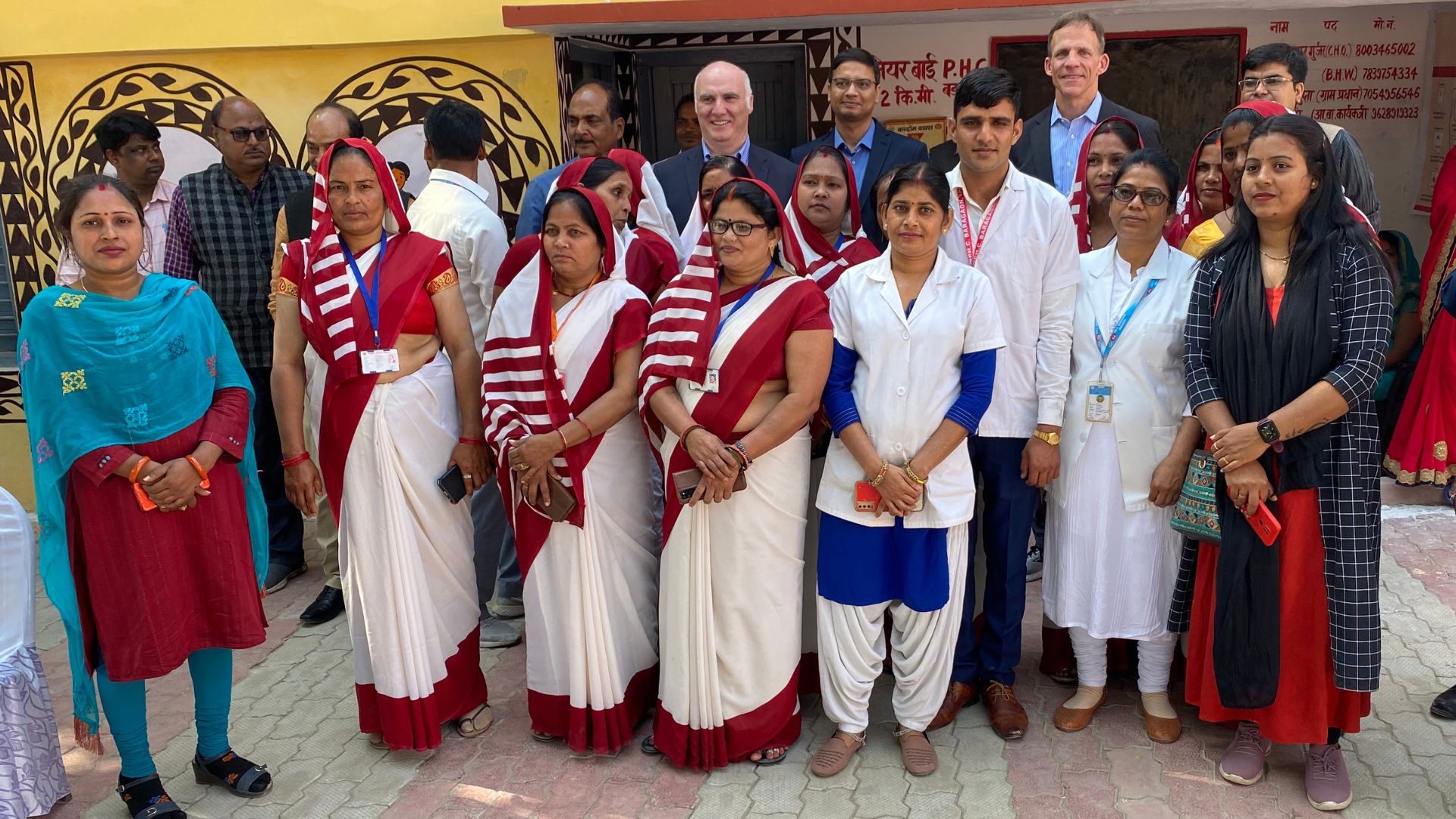U.S. Government-supported epidemiology training equips public health officials with the skills to detect and respond to health threats in real time.
August 2023

The U.S. CDC-supported Field Epidemiology Training Program (FETP) equips health care workers with the knowledge and skills to respond to health challenges, especially among hard-to-reach communities. (Photograph by Imtiaz Imam)
A trained public health workforce is crucial to managing and mitigating a large-scale disease outbreak. The U.S. Centers for Disease Control and Prevention (CDC), along with the Indian National Centre for Disease Control (NCDC) and Ministry of Health and Family Welfare, equips and trains medical professionals to detect and respond to health threats through its Field Epidemiology Training Program (FETP).
In February 2023, the CDC jointly organized the Field Epidemiology Training Program–India Conference 2023, at Varanasi, Uttar Pradesh. The conference brought together members of the FETP cohort, who shared their stories of success and community impact.
Making a difference
Dr. Vazinder Kaur, a noncommunicable disease consultant in Raipur, Chhattisgarh, and FETP alumna is proud of what she does. The training, she says, has helped her leverage a stronger relationship between the community and the local health care system. She recounts her experience with an elderly woman living in a remote village of her state, as an example. “The woman was suffering with hypertension for six years,” she says. “She was not aware of lifestyle modification or food habits, nor was she regular with her medicines. With intervention, we managed to bring in some lifestyle changes and put her on a salt-restricted diet.”
The skills and exposure that FETP gave Bhavesh Lodhi, an Epidemic Intelligence Service (EIS) officer, came in handy during the COVID-19 pandemic. One of his biggest successes was bringing an Omicron outbreak under control in a residential school in Karnataka’s Dakshina Kannada district. The school was in a rural community, and they had to act fast. “After doing all the studies, collecting data, analyzing it and making sense of it, we were able to present specific findings that helped the school cut off transmission and protect its children [from the viral strain].”
Empowered workforce
The impact of the FETP training has wider effects beyond the community. For example, Dr. Shailaja Yadav, an FETP trainer, says the program was implemented at the district level across states, also allowing trainers like her to interact with local officials. Her high point during the training was when an EIS officer informed her that sharing information with their peers in the public system has become easier after they understood the importance of their work and the impact they have on the lives of the people under their care.
The training equipped the cohort members with key skills and instilled the confidence necessary to carry out their day-to-day work. For instance, Vikas Kokare, an Applied Epidemiology Programme officer with WHO in Gujarat, and an FETP alumnus, says the program provided him with the knowledge and skill set to do better work on the field, and empowered him as a public health professional to face day-to-day challenges in the sector. “[Enrolling for the program] was one of the finest decisions I took in my life,” says Kokare.
At the FETP-India conference in Varanasi, members of the FETP cohort shared their success stories and challenges, highlighting the community impact of their work. “It was an opportunity to hear from the frontlines—the officers, graduates and state surveillance officers sharing their stories about how FETP impacts their work,” says Dr. Kristin VanderEnde, the FETP resident advisor at CDC India. “This highlights what we do as FETP and connects it to public health impact. And the stories were incredible—a great reminder of the importance of what we do at FETP.”
Collaborations for change
The FETP consists of three tiers, administered through three hubs—the NCDC, the Indian Council for Medical Research-National Institute of Epidemiology and the World Health Organization Country Office for India. U.S. CDC Country Director Dr. Meghna Desai says FETP helps countries develop “disease detectives” at the district, state and national levels, who are capable of detecting and responding to disease outbreaks.
The program broadly covers basic epidemiology, disease surveillance, epidemic preparedness, outbreak investigation and response, designing field-based studies, carrying out field exercises and surveys, institutional data analysis and report writing.
Click here to sign up for the free SPAN newsletter: https://bit.ly/SubscribeSPAN
Want to know more
Robert Frank
Want to know more